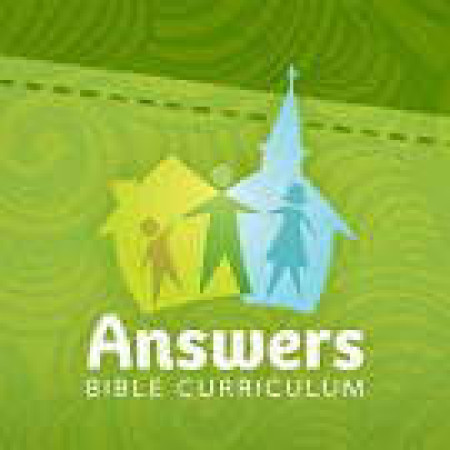In this lesson, we examine the call of Noah at the beginning of the Flood account in Genesis. We also look to answer two questions: Why did God have to send a flood to destroy the world? And was Noah spared from the Flood because of his good works?
Sermons & Sunday Schools
Sermons/Sunday Schools by David Capoccia: (Page 42)
Death Before the Fall?
- Speaker: David Capoccia
- Series: Answers Bible Curriculum, First Edition
- Text: Selected Scriptures
- Topics: Apologetics, Creation & The Flood, Fall & Original Sin
- Downloads: mp3
In this lesson, we examine whether it’s possible, as many old-earth advocates contend, that death existed before Adam and Eve’s sin.
The Hearts of Man
- Speaker: David Capoccia
- Series: Answers Bible Curriculum, First Edition
- Text: Selected Scriptures
- Topics: Apologetics, Fall & Original Sin, Salvation & The Gospel
- Downloads: mp3
In this lesson, we discuss the state of man’s heart in light of Adam’s fall and the rest of the Bible: is man basically good, evil, or malleable? We also examine whether any man is able to choose God on his own and how the doctrine of original sin should affect our presentations of the gospel today.
Cain and Abel
- Speaker: David Capoccia
- Series: Answers Bible Curriculum, First Edition
- Text: Genesis 4:1-18
- Topics: Apologetics, Fall & Original Sin, Salvation & The Gospel
- Downloads: mp3
In this lesson, we examine the account of Cain and Abel, considering why Cain’s sacrifice was rejected, why Cain killed his brother, and what this historical event means for us today. We also answer this question: “Where did Cain get his wife?”
Effects of the Fall
- Speaker: David Capoccia
- Series: Answers Bible Curriculum, First Edition
- Text: Genesis 3:8-19
- Topics: Apologetics, Fall & Original Sin, Salvation & The Gospel
- Downloads: mp3
In this lesson, we discuss the different effects of the Fall evident in God’s confrontation of Adam and Eve and in the curses God pronounces as punishment for their disobedience; the curses have implications for Satan, child rearing, marriage, work, and death. We also examine how believing in Jesus Christ rescues one from all of these…
Corruption: Sin Enters the World
- Speaker: David Capoccia
- Series: Answers Bible Curriculum, First Edition
- Text: Genesis 3:1-24
- Topics: Fall & Original Sin, Salvation & The Gospel
- Downloads: mp3
In this lesson, we begin discussing the second C of the Seven Cs of Creation: Corruption. Using Genesis 3, we examine the circumstances of the Fall, the strategy Satan uses against Adam and Eve, and the gospel’s appearance in the midst of the tragedy.
Creation Compromise
- Speaker: David Capoccia
- Series: Answers Bible Curriculum, First Edition
- Text: Genesis 1:1-31
- Topics: Apologetics, Creation & The Flood, False Teachers & False Teaching
- Downloads: mp3
In this lesson, we discuss three common old-earth viewpoints in today’s church: the Gap Theory, Progressive Creation, and Theistic Evolution. We also consider whether the church’s previous error regarding geocentrism/heliocentrism in the early 1600s should affect our attitudes toward the claims of scientists and theologians today.
Stewards of God’s Creation
- Speaker: David Capoccia
- Series: Answers Bible Curriculum, First Edition
- Text: Genesis 1:26-31
- Topics: Creation & The Flood, Social & Environmental Issues
- Downloads: mp3
In this lesson, we examine man’s role as ruler over the earth and its resources. We also consider how Christians should respond today to environmental concerns like Global Warming.
How Old Is the Earth?
- Speaker: David Capoccia
- Series: Answers Bible Curriculum, First Edition
- Text: Genesis 11:10-26, Genesis 5:1-11
- Topics: Apologetics, Creation & The Flood
- Downloads: mp3
In this lesson, we discuss Genesis’s clear and specific claims about the age of the earth, both in Genesis 1-2 and in the special genealogies of chapters 5 and 11. We also examine radioisotope dating and whether its necessary assumptions fit with a biblical worldview.
God Creates Man and Woman
- Speaker: David Capoccia
- Series: Answers Bible Curriculum, First Edition
- Text: Genesis 2:4-25
- Topics: Apologetics, Creation & The Flood, Marriage
- Downloads: mp3
In this lesson, we examine the account of man’s and woman’s creation in Genesis 2 and think through the passage’s implications for gender and marriage today. We also discuss whether Genesis 2 contradicts Genesis 1 and whether we should see Genesis 2 as straightforward history or evolutionary allegory.

